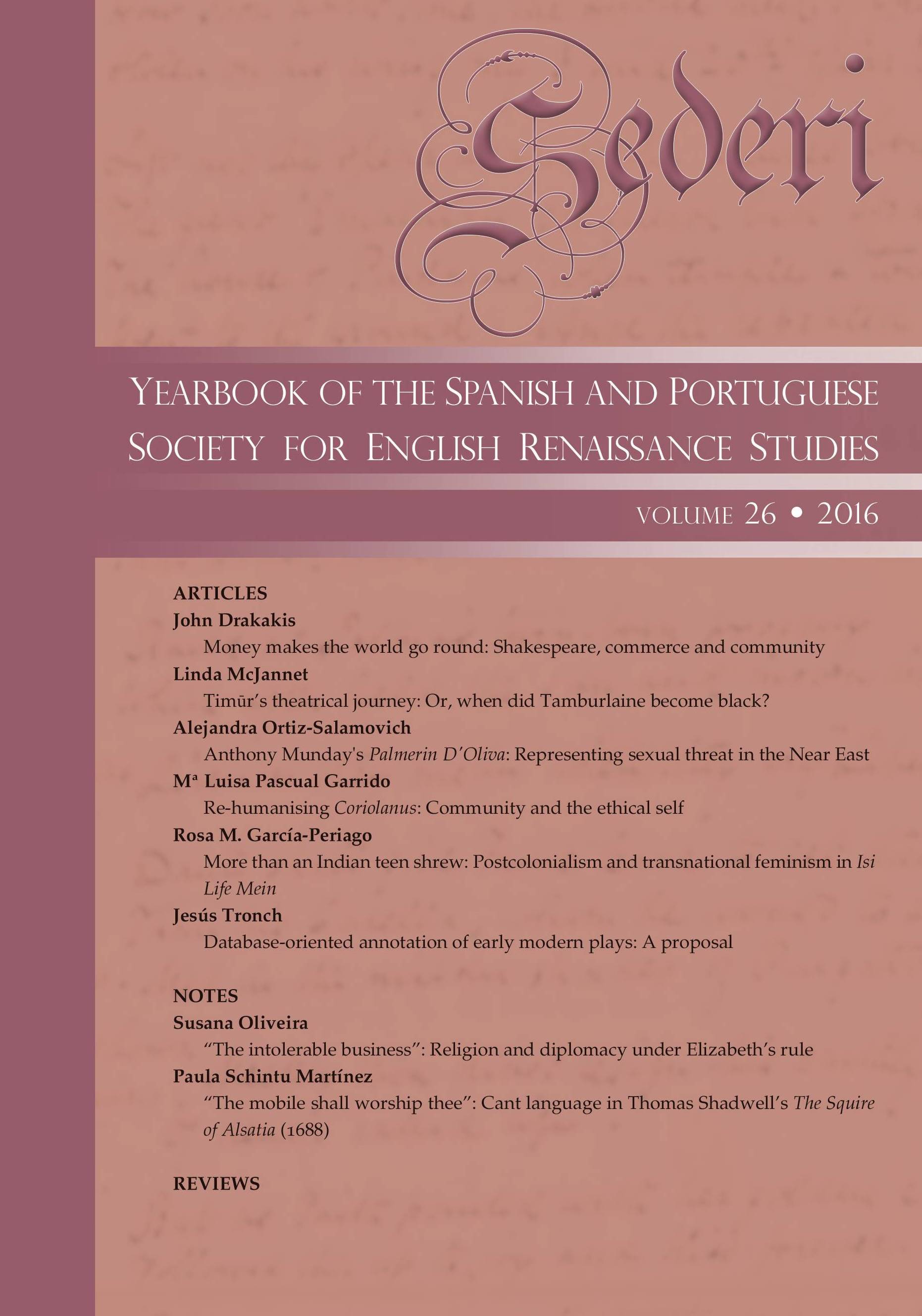Re-Humanising Coriolanus: Community and the ethical self
Resumen
In this article I analyze subjectivity in Coriolanus taking as a starting point the traditional antagonism between essentialist humanism and cultural materialism. While mainstream humanism has approached Shakespeare’s plays stressing the transcendental nature and autonomy of the subject, cultural materialism has challenged that assumption by underscoring the actual lack of freedom of the individual whose actual choices are determined not by the inherent nature of the hero but by social and political forces. My aim is to try to bridge the gap between two seemingly divergent ways of understanding subjectivity by adopting a more skeptical form of humanism, which is based on both the acceptance of the limits and the vulnerability of human beings (Mousley 2007) and recent developments in communitarian theory and biopolitics (Nancy 1991; Agambem 1998; Butler 2006; Esposito 2012). I contend that Coriolanus is an embodiment of humanity, a singular being capable of making an ethical choice at risk of his own death.Descargas
Descargas
Número
Sección
Licencia
The copyright holder of the published contributions is SEDERI.The hardcopy and an open-access version of the journal will be published simultaneously. The issues will be available online in the SEDERI website (http://www.sederi.org/yearbook/) and other repositories that have signed an agreement with SEDERI.
The authors who publish with this journal agree to the following terms:
a) SEDERI retains copyright of the essay.
b) If the author wishes to republish or rewrite the essay for another journal, or include the essay published in SEDERI in their personal repositories, or in any other way, they should contact the editors to obtain permission to do so. This will entail citing SEDERI as the original source and sending the editors a copy of the new version, or the link to the website, in case of online publishing.
The author(s) hereby warrant(s) that:
a) The essay submitted for publication is an original creation and does not infringe any copyright or property right of another journal, author or publisher.
b) The essay submitted for publication has not been previously published, whole or in part, and is not being considered for publication elsewhere.
c) Written permission has been obtained for any material from other sources included in the essay submitted for publication.




